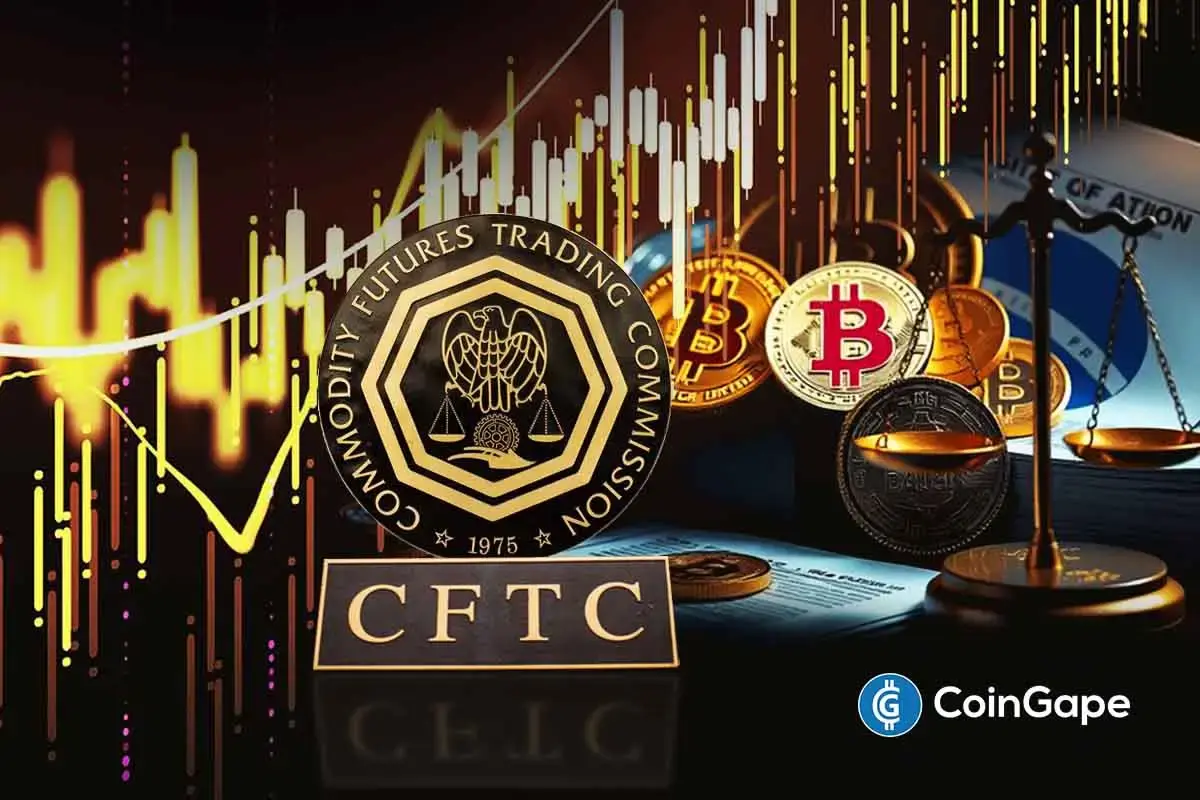Ex-SEC Official John Reed Stark to Testify on Crypto Enforcement

Highlights
- John Reed Stark advocates for robust SEC oversight of crypto assets.
- Stark refutes claims that SEC 'regulates by enforcement' in crypto space.
- Courts uphold SEC’s authority to treat digital assets as securities.
John Reed Stark, ex-head of the SEC’s Office of Internet Enforcement, is due to give testimony before the United States House of Representatives Financial Services Committee concerning the regulation of securities laws, particularly in the crypto market, on May 7th. Stark, who has an extensive securities law background, intends to illuminate the obstacles and needs of regulating the digital assets industry.
Stark argues that the SEC’s charges of overreach with “regulation by enforcement” are baseless, saying that what the critics call overreach is actually the SEC doing what it is supposed to do, which is to enforce the law.
SEC’s Approach to Crypto Regulation
In his prepared statement, Stark argues in favor of the current SEC regulatory position, underlining that the specifics of digital assets call for a strong regulatory approach to protect investors.
Stark asserts that the digital asset industry calls SEC Regulation by Enforcement simply enforcement. Thus, he highlights several high-profile crypto failures, such as FTX, that indicate the volatility and risks inherent in the crypto market. Stark argues that these kinds of cases are proof of the need for proper regulations to ensure the safety of investors and the dignity of the capital market.
Stark also provides a historical review of the SEC enforcement and states that the commission has continually changed its enforcement strategy to address new market technologies and concerns. His argument relies on the Howey Test, a standard set by a Supreme Court case in 1946 that has been used for years to determine what constitutes an investment contract in the context of U.S. securities law.
In addition, he believes that Howey Test principles are fully applicable to digital assets and refutes the assertion that the SEC has not given fair notice to the crypto industry.
Judicial Support for SEC’s Crypto Enforcement
The testimony stresses that federal courts have generally upheld the power of the SEC to consider digital assets as securities. Stark alludes to various court decisions where the judges supported the SEC’s actions against the crypto companies, making it clear that the SEC had provided adequate notice through its prior enforcement activities and public guidance. He refers to a judgment that the SEC’s position on crypto assets regulation aligns with the traditional securities law interpretations, providing required legal certainty and enforcement consistency.
In closing his speech, Stark recommends a tougher regulatory framework to address the precise risks digital assets pose. He also argues that they need to work together in creating rules, ensuring that any innovation is not hindered by heavy regulations while underpinning strong investor protection and market integrity.
At the same time, in a message on X, Stark expresses concerns over the current market of digital assets, which he calls a “post-apocalyptic anarchical free-for-all,” in which the majority of the cryptocurrency tokens’ intricacies are not thoroughly put under scrutiny and effectively communicated by those who push them forward.
Crypto Market Challenges and State Interventions
What is crucial to the narrative of Stark in the digital asset sector is that he argues that many in the crypto-verse are mistaken to think these assets do not need the sort of close supervision characteristic of traditional financial markets. He compares this situation to allowing unskilled people to perform complex surgeries, which is why many risks and irresponsibilities come from the lack of regulation.
Hmm, you are probably guessing right my friend — A sample of my thoughts this morning:
Let’s face it — most of the cryptoverse is not the Wild West, but more akin to a Walking Dead-like post-apocalyptic anarchical free-for-all. Promoters are marketing, and the investing public…
— John Reed Stark (@JohnReedStark) May 6, 2024
Additionally, Stark believes that with the SEC’s lack of active enforcement, the digital asset market will become a malpractice and fraud paradise, “drug dealers doing brain surgery.”
Therefore, Stark asserts that the activities in the cryptocurrency market trigger existing securities laws such as the ‘33 Act and the ‘34 Act- due to the nature of digital assets and their trading platforms.
He criticizes digital asset exchanges, brokers, and market makers because they employ terms that create the impression of the level of customer loyalty and protection, which is not true. Stark also says that this causes ‘pseudo masking of investment-related guarantees’ for investors, who have a wrong conception of the very nature of their investments and their inherent risks.
Read Also: Bitwise CIO Claims SEC Crackdown Is Favoring Coinbase
Play 10,000+ Casino Games at BC Game with Ease
- Instant Deposits And Withdrawals
- Crypto Casino And Sports Betting
- Exclusive Bonuses And Rewards

- BTC Price Bounces as Spot Investors Buy The Dip Amid Iran War Jitters
- CFTC Chief Mike Selig Signals US Crypto Perpetual Futures Rollout in Coming Weeks
- Fed Rate Cut Odds Drop as Inflation Fears Rise Due To U.S. Iran Conflict
- Here’s Why Tether Gold (XAUt) Price Is Falling Even With Growing Gold Demand
- XRP News: Ripple Expands Payments Platform To Unify Fiat and Stablecoins Globally
- Gold Price Prediction March 2026: Rally, Crash, or Record Highs?
- RIOT Stock Prediction as Needham, Piper Sandler Slash Target After Earnings
- Cardano Price Outlook As Charles Hoskinson Warns Over CLARITY Act
- Circle Stock Price Climbs 15% to $96, Can Rally Continue in March 2026?
- Bitcoin Price Prediction as US-Iran War Enters 4th Consecutive Day
- Top 5 Historical Reasons Dogecoin Price Is Not Rising

 Buy $GGs
Buy $GGs
















